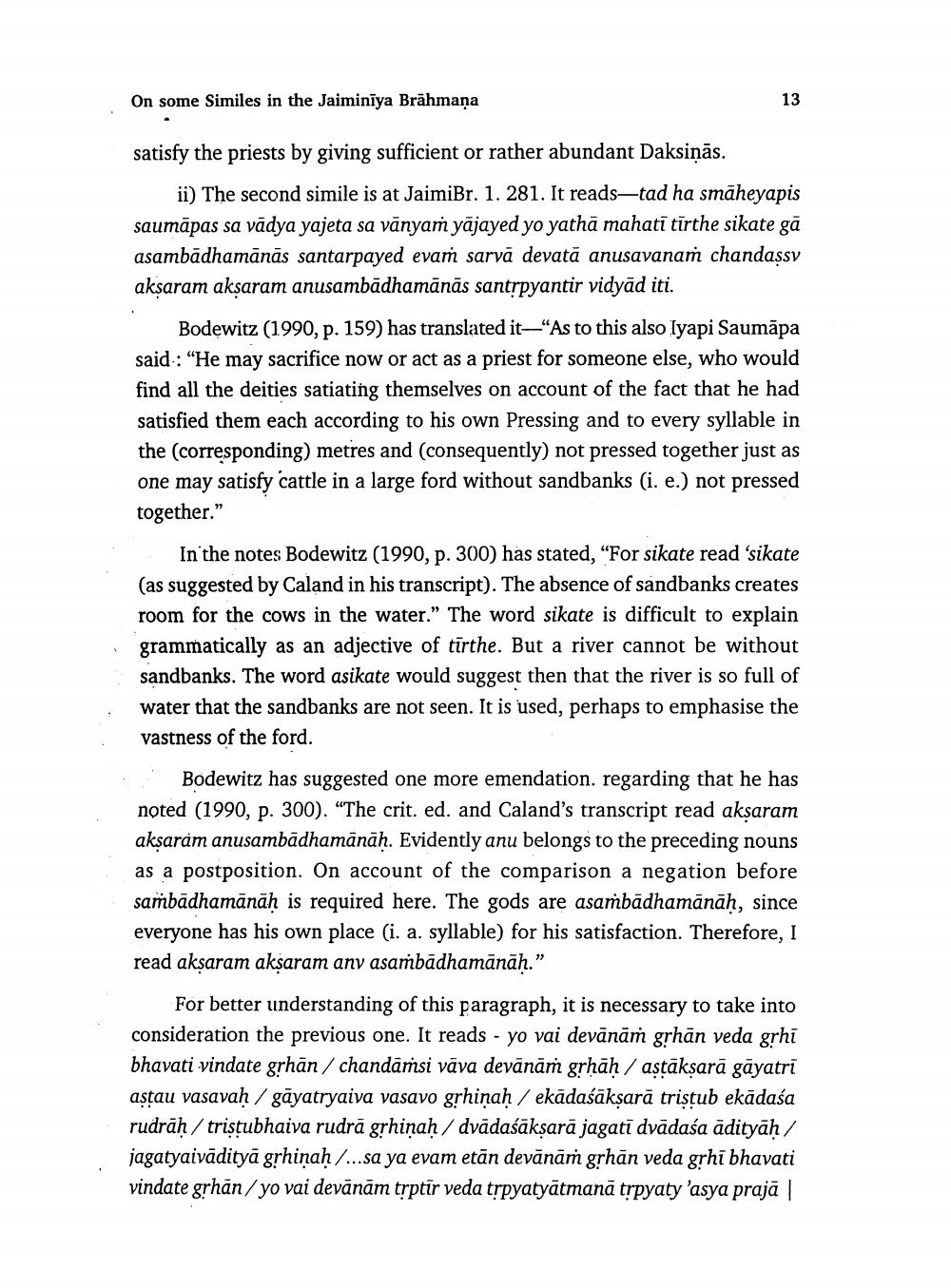________________
On some Similes in the Jaiminīya Brāhmana
13
satisfy the priests by giving sufficient or rather abundant Daksiņās.
ii) The second simile is at JaimiBr. 1. 281. It reads—tad ha smāheyapis saumāpas sa vädya yajeta sa vānyam yājayed yo yathā mahati tirthe sikate gā asambadhamānās santarpayed evam sarvā devată anusavanam chandassy aksaram aksaram anusambādhamānās santrpyantir vidyād iti.
Bodewitz (1990, p. 159) has translated it—“As to this also [yapi Saumāpa said: "He may sacrifice now or act as a priest for someone else, who would find all the deities satiating themselves on account of the fact that he had satisfied them each according to his own Pressing and to every syllable in the (corresponding) metres and consequently) not pressed together just as one may satisfy cattle in a large ford without sandbanks (i. e.) not pressed together."
In the notes Bodewitz (1990, p. 300) has stated, "For sikate read 'sikate (as suggested by Caland in his transcript). The absence of sandbanks creates room for the cows in the water." The word sikate is difficult to explain grammatically as an adjective of tīrthe. But a river cannot be without sandbanks. The word asikate would suggest then that the river is so full of water that the sandbanks are not seen. It is used, perhaps to emphasise the vastness of the ford.
Bodewitz has suggested one more emendation. regarding that he has noted (1990, p. 300). "The crit. ed. and Caland's transcript read aksaram aksaram anusambādhamānāḥ. Evidently anu belongs to the preceding nouns as a postposition. On account of the comparison a negation before saṁbādhamānāḥ is required here. The gods are asaṁbādhamānāḥ, since everyone has his own place (i. a. syllable) for his satisfaction. Therefore, I read aksaram aksaram any asambūdhamanah."
For better understanding of this paragraph, it is necessary to take into consideration the previous one. It reads - yo vai devānām grhān veda grhi bhavati vindate grhān/ chandāmsi vāva devānāṁ grhāḥ / astākṣarā gāyatrī astau vasavah / gāyatryaiva vasavo grhiņaḥ / ekādaśākṣarā tristub ekādaśa rudrāh/ tristubhaiva rudrā grhiņah / dvādaśāksarā jagati dvādaśa ādityah/ jagatyaivādityā grhiņaḥ /...sa ya evam etān devānāṁ grhān veda grhī bhavati vindate grhan/ yo vai devānām trptir veda trpyatyātmanā trpyaty 'asya prajā




